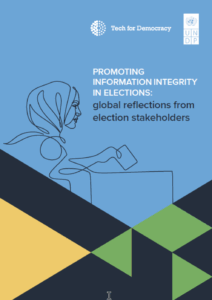THE PERIL OF JUMPING INTO CONCLUSION: WEIGHING MATTERS IN A BROADER CONTEXT

The chef’s advice to reconsider relocating to Europe for job opportunities raises several important points that merit discussion. While his perspective may resonate with some, it’s essential to consider the broader context and the nuances involved in such a decision.
- Taxation in Europe:
- High Tax Rates: Many European countries have higher tax rates compared to other regions, particularly for income tax, value-added tax (VAT), and social security contributions. This can lead to a significant portion of an individual’s earnings being allocated to taxes.
- Public Services: However, it’s important to note that these taxes often fund extensive public services, including healthcare, education, and social security. In many cases, citizens benefit from a higher quality of life, which can offset the burden of taxation.
- Quality of Life:
- Work-Life Balance: Many European countries prioritize work-life balance, offering generous vacation time, parental leave, and shorter workweeks. This can lead to a more fulfilling lifestyle, which some may find worth the higher taxes.
- Social Safety Nets: The social safety nets in Europe can provide security in times of unemployment, illness, or retirement, which may not be as robust in other regions.
- Economic Opportunities:
- Job Market: Europe has a diverse job market with opportunities in various sectors, including technology, finance, and hospitality. For some individuals, the potential for career advancement and professional development may outweigh the tax considerations.
- Cultural Experience: Living and working in Europe can offer unique cultural experiences and personal growth opportunities that may not be available in one’s home country.
- Staying in One’s Home Country:
- Local Opportunities: The chef’s advice to stay in one’s home country can be valid, especially if there are emerging opportunities or a growing economy. Many countries are developing rapidly, and there may be significant potential for entrepreneurship and innovation.
- Cost of Living: In some cases, the cost of living in one’s home country may be lower, allowing individuals to retain more of their earnings and enjoy a comfortable lifestyle.
- Personal Circumstances:
- Individual Goals: Ultimately, the decision to relocate or stay should be based on individual circumstances, career goals, and personal values. What works for one person may not be suitable for another.
- Family and Community Ties: Emotional and social factors, such as family connections and community ties, can also play a significant role in this decision. Conclusion:
The chef’s perspective highlights valid concerns about taxation and quality of life in Europe, but it is essential to recognize that the decision to relocate is highly personal and context-dependent. Individuals should weigh the pros and cons based on their unique situations, considering factors such as career aspirations, lifestyle preferences, and the economic landscape of both their home country and potential host countries. Public enlightenment on this topic should encourage open discussions and informed decision-making, allowing individuals to make choices that align with their goals and values.







